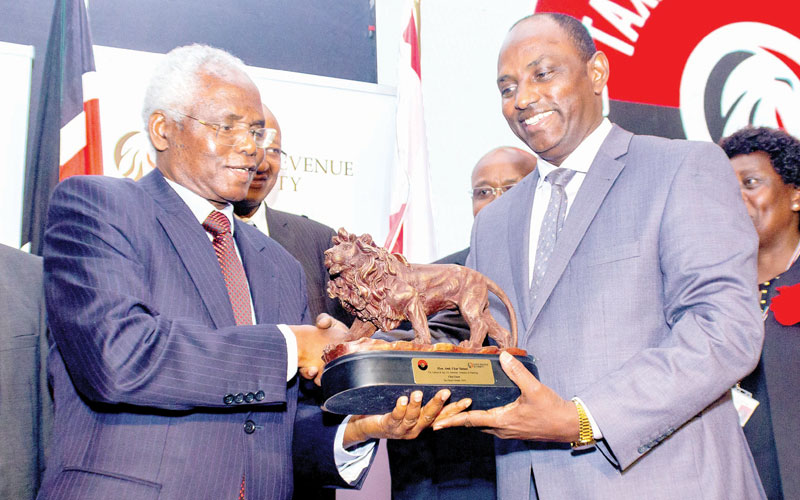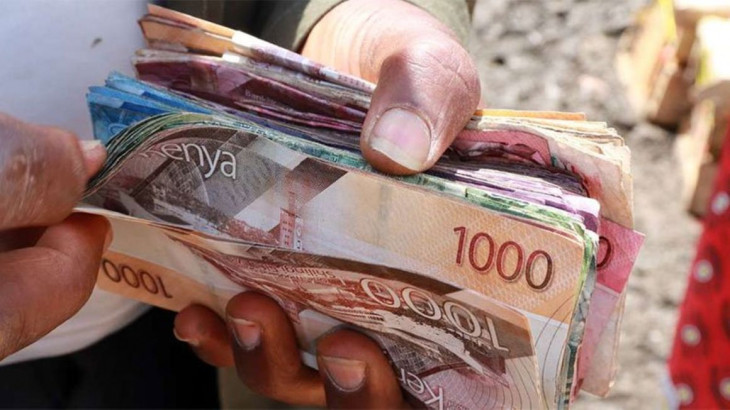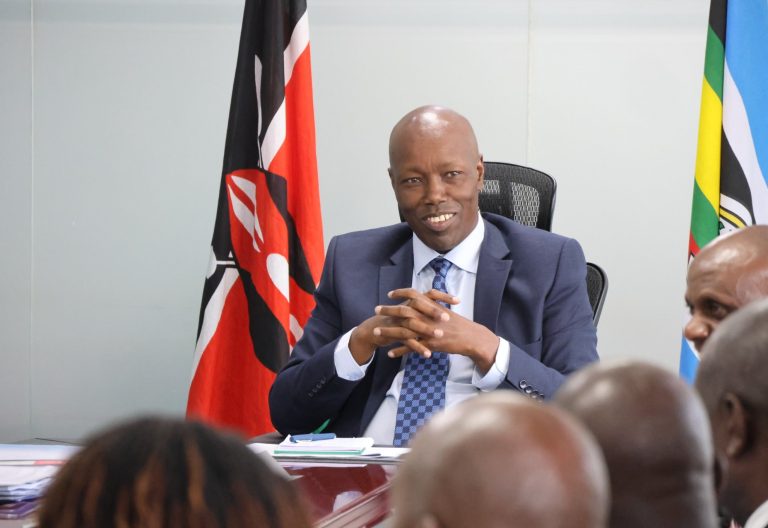Yatani welcomes proposed Sh9tr ceiling on public debt

National Treasury is warming up to the proposed debt-limit which, if passed, will set the ceiling at Sh9.1 trillion and serve as a cushion to Kenya’s rising public debt.
Speaking yesterday during the launch of Kenya Revenue Authority (KRA) annual taxpayers’ month at Times Towers in Nairobi, acting Treasury Cabinet secretary Ukur Yatani said setting the exchequer at 50 per cent to the gross domestic product was not ideal.
The CS said limiting borrowing to a fixed ceiling will deal with public debt better as opposed to shifting targets which fail to provide adequate controls and oversight on the growth of public debt.
In 2014, the government approached Parliament to increase the external borrowing ceiling by Sh1.3 trillion to Sh2.5 trillion which pushed up the total debt to Sh2.4 trillion. However, the debt has continued to rise but no limit has been set.
“Our intention is to grow our economy through sustainable borrowing. As it is today, our debt is sustainable, but we need to have a limit,’’ Yatani said.
Budget paper
Kenya’s public debt levels tripled from Sh1.8 trillion in June 2013 to Sh5.9 trillion as of June 2019 with Treasury expecting it to rise to Sh6.4 trillion by June 2020.
Treasury says the Sh9.1 trillion debt limit is consistent with projections in the 2019 Budget Outlook Paper that estimates public debt at Sh8.7 trillion in June 2024.
However, Yatani said fixing the debt does not mean that it can borrow up to the limit.
A notice on the proposal in Treasury’s website supports the debt limit saying it is consistent with the principles of Public Finance.
Yatani further urged citizens to pay taxes for KRA to mobilise adequate resources that can be used for development.
“We have embarked on tax base expansion as one of the strategic measures of enhancing tax mobilisation under the revenue enhancement initiative,” said Yatani.
The CS said pending tax refunds, are being processed on a case-by-case basis and will be paid without delay.
In 2018, Treasury released Sh7.1 billion to settle tax refunds, mainly value-added tax.
KRA advised companies and individuals, who are dissatisfied with their tax assessments, to use alternative dispute resolution (ADR).
The authority said ADR is a fast, efficient and cost-free means of settling disputes without creating acrimony between involved parties.
Court process
KRA Chairman Francis Muthaura said ADR gives parties in dispute the opportunity to work through the issues with the help of a neutral third party.
“ADR is generally faster and less expensive than court processes. It saves a lot of time by allowing resolution in weeks or months, compared to court, which can take years. ADR saves on legal and expert fees,” said Muthaura.
He said in 2018 alone, about 200 tax disputes cases were sorted through ADR, enabling the taxman to recover Sh8 billion. Muthaura said KRA relies on third-party data such as Kenya Power and National Transport Authority Kenya to assess tax due, adding that the authority had the capacity to collect assigned revenue.
Deputy commissioner-general Elizabeth Meyo said the Electronic Cargo Tracking System system used for monitoring goods transiting through Kenya to neighbouring countries within the East African Community is expected to enhance trade competitiveness.
Meyo said plans were underway to roll out the same to include South Sudan, Tanzania and ultimately to destinations outside the EAC block.
She said KRA has continued to undertake extensive engagements with stakeholders which have helped find solutions to issues of mutual interest.













